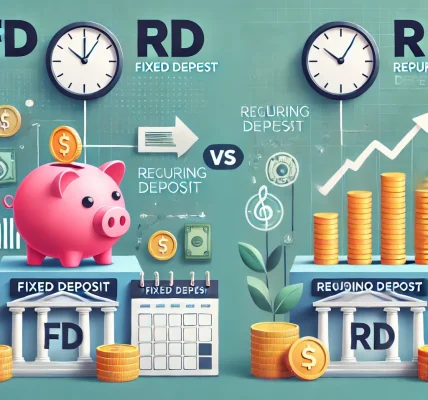Introduction
Personal finance is a crucial skill that can help individuals manage their money effectively, plan for the future, and achieve financial independence. With the rise of online learning platforms, anyone can now access high-quality courses to master personal finance from the comfort of their home. This article explores the best online courses for mastering personal finance, their features, and how they can help you achieve financial stability.
Why Take an Online Course for Personal Finance?
Taking an online personal finance course offers several benefits:
- Financial Independence – Learning how to budget, invest, and save can help you gain financial freedom.
- Convenience and Flexibility – Online courses allow you to learn at your own pace, making them ideal for busy individuals.
- Expert Guidance – Many courses are taught by financial experts, ensuring you receive reliable information.
- Cost-Effective Learning – Compared to hiring a financial advisor, online courses are an affordable way to enhance your financial knowledge.
Best Online Courses for Mastering Personal Finance
1. The Complete Personal Finance Course (Udemy)
- Instructor: Chris Haroun, award-winning MBA professor
- Key Topics: Budgeting, saving, investing, and wealth creation strategies
- Pros: Comprehensive, beginner-friendly, and includes real-life examples
- Cons: Some sections may feel basic for advanced learners
- Best For: Beginners and intermediate learners who want a step-by-step guide to personal finance
2. Financial Planning for Young Adults (Coursera)
- Provider: University of Illinois
- Key Topics: Budgeting, debt management, and retirement planning
- Pros: University-backed course with well-structured content
- Cons: Focuses primarily on young adults
- Best For: Students and young professionals looking for structured financial guidance
3. Smart Personal Finance (edX)
- Provider: Purdue University
- Key Topics: Income management, credit scores, and investment strategies
- Pros: Free option available, expert-led lectures
- Cons: Requires additional effort for advanced financial planning
- Best For: Those who prefer an academic approach to personal finance
4. Ramsey Solutions Financial Peace University
- Instructor: Dave Ramsey and financial experts
- Key Topics: Debt elimination, savings, and wealth-building techniques
- Pros: Proven strategies for getting out of debt
- Cons: Requires paid membership
- Best For: Individuals struggling with debt or looking for a structured financial recovery plan
5. The Psychology of Money (Udemy)
- Instructor: Morgan Housel, financial journalist
- Key Topics: Behavioral finance, money mindset, and emotional spending
- Pros: Unique focus on money psychology
- Cons: Lacks detailed financial planning strategies
- Best For: Those interested in understanding their financial behaviors and improving their money mindset
6. Personal Finance 101 (Skillshare)
- Instructor: Michael Jay, personal finance educator
- Key Topics: Basic financial literacy, investment strategies, and saving techniques
- Pros: Short and easy-to-follow lessons
- Cons: Not as in-depth as other courses
- Best For: Beginners looking for a quick introduction to personal finance
7. Investing for Beginners (Khan Academy)
- Provider: Khan Academy
- Key Topics: Stock market, bonds, mutual funds, and risk management
- Pros: Completely free, well-structured educational content
- Cons: Focuses mostly on investments rather than comprehensive financial planning
- Best For: Those who want to understand investing fundamentals
How to Choose the Right Course for You
When selecting an online personal finance course, consider the following factors:
- Your Financial Goals: Choose a course that aligns with your objectives, whether it’s budgeting, investing, or debt management.
- Course Format: Some courses offer video lectures, while others provide reading materials or interactive assignments.
- Instructor Expertise: Opt for courses taught by certified financial experts or reputable institutions.
- Price and Value: Some courses are free, while others require payment. Determine whether the cost justifies the value provided.
- User Reviews: Check feedback from past students to ensure course quality.
Conclusion
Mastering personal finance is an essential skill that can positively impact your financial future. Whether you’re looking to pay off debt, build an investment portfolio, or simply understand money management better, these online courses offer valuable knowledge and guidance. By enrolling in the right course, you can take control of your financial future and achieve long-term financial success.
Invest in your financial education today and take the first step toward financial freedom!




